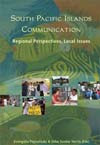 By Cameron Broadhurst: Pacific Media Centre
By Cameron Broadhurst: Pacific Media Centre
After 30 years of reform, the world is feeling the effects of China opening up, especially when one momentous event after another in 2008 brought change that could shape the giant’s identity for years to come.
Early in 2008 were the Tibetan riots and torch protests. They were overshadowed by the Sichuan earthquake. The Olympics followed, then the milk scandal and now the financial crisis. It was the year China extolled its “30 Years of Reform” since Deng Xiaoping opened up the country in 1978; fittingly it was a year that showed that the events that matter now in China are those shared by and affecting the rest of the world.
Beijing spent seven years preparing for the Olympics, and the common sentiment was they were a defining moment for China. Yet just months later, other events have surpassed their significance.
The election of Barack Obama to the US presidency has been followed and even cheered on by many of China’s urban youth, though others fear a new protectionism and his calls for the yuan to be revalued.
Otherwise Obama’s official policy on Taiwan and other issues remains little changed from the Bush administration. But how Obama handles the financial situation will of course affect China.
The economic crisis
China’s domestic response to the world crisis has been a massive “Chinese New Deal”: 4 trillion yuan (US$586 billion) in government funds to kickstart domestic spending. The money largely covers targeting housing and state infrastructure but also includes funds for R&D and environmental protection.
At the same time, the central bank’s slashing of interest rates in November showed a country edging closer to its a new role as a player and manager of the international economy.
When US and European banks began failing in October, state media reports on Chinese banks’ solidity held confidence, but a country heavily reliant on exports for growth could never be immune. As investment from overseas dried up and key export markets slowed, the Chinese economy has been left hurting.
Across the provinces, firms and factories have been hitting the wall, from toy manufacturers to online video companies. By late 2008 thousands of workers were leaving Guangdong daily, as job vacancies in the Pearl River Delta topped 2 million.
During the Economic Forum in Davos, the international monetary elite came out asking China to “have a voice as well as a wallet”, and take a role in making regulations on international capital. That followed close channels of US–China communication at the time of the US bailout, due to China’s massive foreign reserves of US$1.8 trillion.
You Nuo, a journalist at the state-owned newspaper China Daily, says he looks forward to a future where Chinese monetary policy, with its heavy government hand, comes more in line with what he wryly calls the rest of the world’s new financial socialism.
There remains debate over just how stable China will be. But Richard Balme, a professor of politics at Tsinghua University, says if China remains strong, it could gain international standing.
“If the Chinese economy proves to be robust they will come out strong from this,” he says. “So far China has appeared as a stabilizing factor. If confirmed, this would give more strength to its economic policies and influence. And it will benefit its relations with foreign countries.”
With new fuel taxes and oil price reforms, the government is trying to steer China towards higher domestic demand to fill the export gap, not an easy shift to make and one the world is watching with anticipation.
While financial woes may be China’s major worry now, the past half year has seen ample other opportunities for China watchers to examine its progress in the world community.
The Olympic Games and China’s space walk
The Games are over, yet their legacy remains. A European diplomat working in Beijing, who asked not to be named, describes the Beijing Olympics as “an undoubted success by every measure”. He believes the Communist Party’s perception of the political risk of international attention (such as to human rights) increased as the event grew closer, leading to nervousness by internationalists in the party over a possible backlash from more inward-looking factions.
Such nervousness may explain the dramatic measures to close down large gatherings in the lead-up to the event.
“The Games will have been a great relief. It was also a success in reinforcing the party’s claim to legitimacy in running the country,” he says. “It was very well managed in strengthening the party’s claim to the mantle of power. That was the stabilizing influence of the Games.”
Shortly after the Games finished, and timed as if to continue the triumphant China theme, millions watched as a Chinese astronaut performed the country’s first space walk, shaking a red flag out in the solar void. Experts and commentators lauded the great technical achievement, another step toward a Chinese space station within four years, and ultimately a moon landing.
Journalist You believes people did not really care a great deal about the space walk, but were and are more concerned about keeping the GDP at 10 percent. More important, and undermining the hype of progress, was the milk scandal.
Milk and melamine
Infant deaths and thousands of sick babies across the country were shocking enough to Chinese mothers, but nations around Asia were also forced to test for foods when it became known some Chinese milk powder was laced with melamine.
A number of people took the blame for mistakes, including the head of the General Administration of Quality Supervision, Inspection and Quarantine (AQSIQ, China’s food and health safety department). Figures for infants affected have now reached six deaths, and 294,000 sickened. Compensation will be up to US$29,000 per family.
But despite months of clues since early 2008, the whole scandal broke conveniently only as the Paralympics was drawing to a close. The eventual scale of it may have taken the government by surprise.
“AQSIQ is not working and has never worked,” says You. “The milk crisis is not going away, because we’re waiting for new standards in that industry.”
While a new ‘preemptive’ food monitoring system was being introduced to promote prevention instead of crackdowns after the fact, food problems continued. Melamine was found in eggs in Hong Kong, and formaldehyde in whitebait. In late December authorities began investigating melamine in tableware as well.
“The scandal is a reminder of the problems we’ve always known,” says the diplomat. “But at the same time after the Games there was less schadenfreude and a higher stock of world sympathy for China than with the toy problem.”
The real problem, he suggests, is threefold. First, regional branches of the government are not funded properly so seek revenues locally, creating a tendency for them to be in the pockets of the people they are regulating.
Second, fiscal policy, made in Beijing, attempts to deal with food prices through price controls.
The third problem is the weakness of the press and its connection to large companies. As many have noted, it is customary in China that either there is no problem at all, or a crisis so serious that it overwhelms the system. A controlled media and lack of independence in monitoring systems means problems are rarely exposed early.
For media, the after-effects of the Games have turned. Foreign journalists’ license to interview at will was been made permanent, (though no such allowance is granted Chinese journalists).
But since the games, major news outlets and foreign websites that were penetrating ‘the Great Firewall’ have now again been curtailed, as censors moved to block previously accessible ‘sensitive content’ after the world’s gaze had moved on.
Behind closed doors
Other events in China attract less attention, but may be even more significant. New land reforms could transform the future of property in China. Basic land rights for rural residents, previously held only by city dwellers, were created in October’s Communist Party Committee Congress, enabling peasants to rent out their plots and protecting them from land grabs by developers.
Beijing sees the reforms as critical to lifting Chinese peasants (there are about 700 million of them) out of poverty and stimulating domestic demand to combat the export crisis. Connected to the push for more rights are the problems of the Chinese labor force, which remains tied by a permit system to their origin – construction workers, for example, were sent packing once they had built Beijing for the Olympics.
Balme says other important changes to Chinese law are being made without public awareness, and he cites the review of death penalty cases and the reform of arbitrary detention.
“Small steps, but the direction is there,” he says. “Chinese authorities are open to dialogue and borrowing from foreign expertise.”
Among the human rights dilemmas, Tibet holds little chance of any political change. Balme says that since the Olympics, China has come to understand the EU is critical of its human rights position, without accepting it, and there is major difficulty in European influence forcing the Chinese to change against their will.
President Sarkozy’s decision to meet with the Dalai Lama in December outraged the Chinese government, who cancelled an EU summit because of it. The French president is becoming an unpopular figure in China, and an easy target for the nationalistic rage that the government encourages to deflect anger from itself.
China is also still eager to hold onto its developing country status, wanting to benefit from it in forums, trade and climate change talks. In one recent radio interview, Wen Jiabao corrected an interviewer who described the country as a new great power. “We are on the way to becoming a moderately prosperous socialist economy,” he said.
A main thrust of foreign policy and public announcements is combating the story that China’s rise is a threat. China’s Asian partners, such as India and Indonesia, are hedging their bets, for other major countries in Asia will not want an unduly powerful China in the region.
And while the world looks increasingly to China’s role, the Chinese are without doubt hoping for more of a role themselves. As a Chinese journalist, You is looking at his country’s response to the financial crisis to define its future among global economies.
“Money doesn’t have a motherland,” he says jokingly. “Regulators of the world unite.”
Cameron Broadhurst returned recently to NZ from an AUT Pacific Media Centre internship with China Daily.com as part of an exchange agreement between the China Daily and AUT University. Cameron's air travel was sponsored by a grant from the Asia: NZ Foundation. This article was originally published in the Jakarta Daily Post on January 29.
 Violet Cho, a 25-year-old Karen journalist writing for Irawaddy magazine and living in Thailand, has won AUT Pacific Media Centre's inaugural Asian Journalism Fellowship. The fellowship is supported by an Asia: NZ Foundation grant. She arrives in New Zealand today and will join the Bachelor of Communication Studies (Honours) programme and be a resource journalist with the PMC for a year. Here is her story:
Violet Cho, a 25-year-old Karen journalist writing for Irawaddy magazine and living in Thailand, has won AUT Pacific Media Centre's inaugural Asian Journalism Fellowship. The fellowship is supported by an Asia: NZ Foundation grant. She arrives in New Zealand today and will join the Bachelor of Communication Studies (Honours) programme and be a resource journalist with the PMC for a year. Here is her story:

































